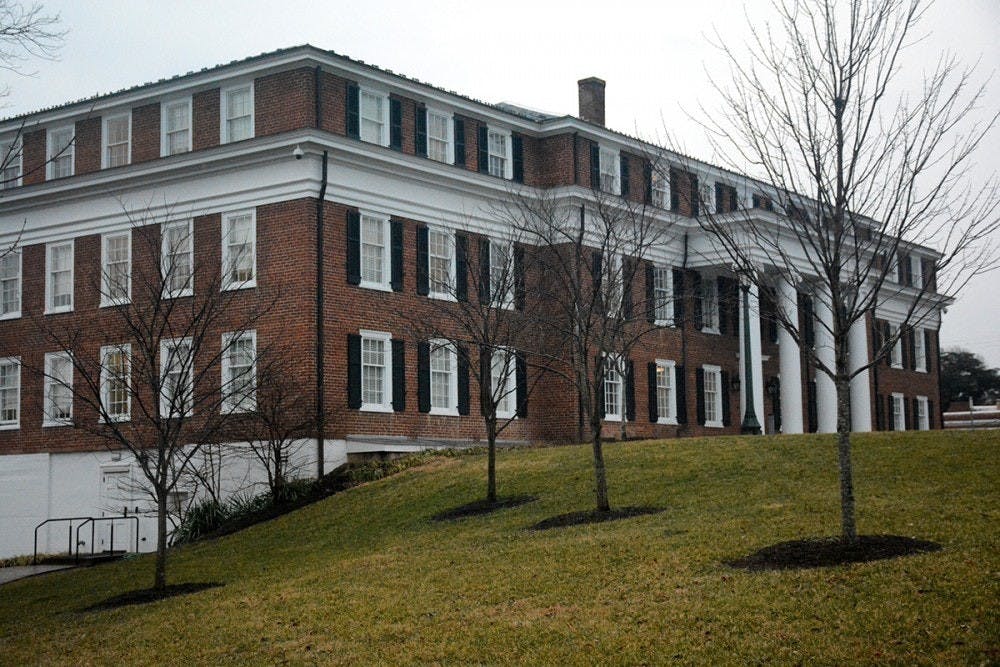Over the past couple weeks, the Honor Committee has met to discuss a proposed bylaw concerning Title IX cases and their investigations, which are cases regarding sexual and gender-based harassment and violence. There is no clear majority opinion within the Committee for several reasons — the most important of which is the lack of expertise and resources that Honor has to hear cases of this magnitude. Despite this agreement within the committee, the bylaw has not yet been rejected by Honor representatives. As the possibility of a change is discussed this week, it has become clear that Honor should not hear these cases. Rather, the Title IX office should step up its game so that Honor does not need to absorb this heavy responsibility. If not, many of these students will be failed twice — first by Title IX and then again by Honor if a decision is made to hear their case.
Under the new proposal, every Title IX-related case introduced to the Honor Committee must be reviewed by the Title IX Coordinator prior to being heard to ensure Honor is not re-adjudicating the initial case. As explained by Alex Spratley, fourth-year College student and Vice Chair for Hearing, Honor is “not here to act as an appeal to Title IX,” meaning that while they do aim to initiate critical changes, they are respecting due process while doing so. Specifically, Honor will not gain the ability to hear Title IX cases, but rather Honor-related cases that arise out of Title IX reports and investigations. However, this issue only brings to light the changes that Title IX must make to better serve survivors so that Honor does not need to be involved in these types of cases.
The bylaw provides two types of overrides that could allow them to hear Title IX-related cases. The Committee cited two examples in which an override of the policy, which must be approved by a unanimous vote by the executive committee before they could take place. The first override — which was widely supported throughout the Committee — would be used in more standard cases. For example, “if an accused party admitted to stealing a bike and that fact was not relevant to the Title IX investigation,” then Honor could hear the case based on the theft. However, Honor will still be unable to make decisions regarding the sex or gender-based crime that was initally reported to the Title IX office.
The second override was more controversial within the Committee, as it would allow Honor to hear any and all cases deemed “catastrophic” to the University and its community. It is unclear what the exact definition of a “catastrophic” case would be as it is used here. Regardless of any concrete definition of “catastrophic,” the possibility that Honor can access information pertaining to Title IX cases should alarm the entire University community.
While Honor’s intent here is admired, it should not be required. Ideally, the Committee should focus on hearing reported cases of Honor Code violations — as that is their outlined role — and allow Title IX to do their part in handling reports of sex and gender-based offenses. Yet, the reality is much more complex, as the introduction of these proposed bylaws only highlights the need for Title IX reform at the University. As The Cavalier Daily reported last month, the current system is failing us. If the Title IX office could be trusted to accurately investigate and hear cases, then perhaps Honor would not feel as if it needs to make such radical leaps outside of its duties.
Clearly, the Title IX process here at the University needs to undergo intensive structural changes in order to become the reliable and trustworthy resource students both deserve and need. If Title IX were to remain as flawed as it has shown to be, survivors would be forced to go through an elongated and potentially traumatic experience in hopes of achieving justice. Many of the cases that come from this bylaw could very possibly stem from a failure of Title IX investigations — it should not fall on Honor to make up for these shortcomings. It should not be the responsibility of students to make up for the inadequate proceedings of the University's Title IX office.
The Cavalier Daily Editorial Board is composed of the Executive Editor, the Editor-in-Chief, the two Opinion Editors and their Senior Associate. The board can be reached at eb@cavalierdaily.com.
Correction: This article previously misstated that Title IX is a “federal agency” and has been updated to reflect that Title IX is an administrative team within the University's Office for Equal Opportunity and Civil Rights.







